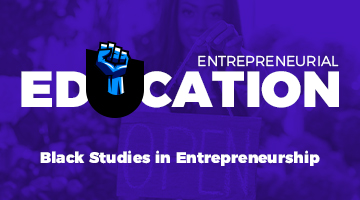There is no such thing as a bad economy in sovereign nations; a sagging economy, yes. Bad? No. I can’t count how many times I’ve explained this, but doesn’t ache me to do so. The only thing sovereign economies do is experience a shift in needs. When trauma hits an economy, people shift what they desire to consume and invest in. While this demand is shifting, businesses scramble to be able to accommodate these needs of consumers and are often forced to downsize or lay-off workers as they reinvent. Now, during this process, the economy contracts and those holding the wrong investments see a financial loss indefinitely, while others see their losses temporarily. So who’s who? Fact is the rich lost money during our recent recession but because much of their assets are in paper (stocks, business ownership/sellable equity, etc.), and these are instruments, which, quite frankly, see fluctuations in value almost daily, gives these people the ability to bounce back.
The Worker Mindset
I remember when I bought my first residential property in Georgia. A security system salesman knocked on my door attempting to sell me one of their security systems. I wasn’t interested. He wasn’t pleased. He became irritated over my refusal and said, “I am only trying to help you protect your biggest investment.” I didn’t issue a rebuttal but I was silently insulted. I thought to myself “How could this be my biggest investment? What about my human capital, my stock investments, my children’s education, business investments, and my investment properties that actually generates cash and wealth opportunities beyond my physical labor?” Frankly, I believe a resident is a liability. Assets are those that not only gain value, but pay for themselves and generate additional income. We slave to maintain our homes.
However, after looking at the numbers I can clearly see where he would get such a belief. He is not alone in his ideology. The average American’s major wealth is in their residential property and very rarely extends beyond that. We work hard to pay-off our homes and reach a vested pension or retirement. We try to play it safe. But is this really the safe route? In the book, “The Millionaire Next Door” the authors Thomas Stanley and William Danko said, “Being an entrepreneur or investor is the safest way to live in America. You have to upset all of your customers to lose 100% of your income, while being an employee you only need to upset one person (your boss) to lose 100% of your income.” After reading this book, I began to live by this theory!ent

Market Watch cites that just over 90% the middle-class worker’s wealth is in their home and between 2003 and 2007, these middle-class workers collectively lost (forever) $2.3 trillion in wealth. To top it off, those in control of real estate appreciation is the very corporate regulators who caused the bubble to bust in the first place. Since the no-down payment and “stated loans” are a thing of the past, investors are not rushing to make re-financing or purchasing easy, causing a slowdown in homes being built or available, thus leading to slow appreciation.
But why are the corporations able to stomach such wrongdoings? Why are they able to have such a negative impact on the lives of workers and move forward with business as usual?
The real problem lies in our financial dynamics. These dynamics doesn’t require millions either. It simply matters what position you put yourself in. Historically, we were in an interdependent relationship; workers relied on corporations for their wealth and corporations relied on workers for theirs. But the truth (that some doubters felt was fantasy) is revealing itself. Corporations indeed care less for workers as they do the financial gains. They are truly here for wealth not workers.
Technology is now able to work 10 times as hard with 10 times less errors than workers. Its productivity is well above the worker without the “emotional headache”, and let’s not discuss the workers overseas who technology has allowed corporations to employ in your place.
Think about it. The security guard is being replaced by sophisticated security systems, the receptionist is being replaced answering services, salespersons are being replaced by newsletter programs, the bi-lingual worker is being replaced by the translation software. So what do you do?
You Are Not Doomed
The truth is as long as there are people seeking convenience and Capitalists seeking returns, there will always be earning opportunities available for anyone who has guts. The beauty supply industry is one I advocate for simply because it is a $15 billion industry with almost 14,000 stores and less than 3% of them are black-owned. I see great opportunity because Blacks generate 96% of the revenue regardless of the economy. We can simply give ourselves a stimulus package by focusing our spending on these 3% of owners eventually creating 13% owners, then 23% owners, then 33% owners, etc.
Competition of non-blacks should not be the concern, it is replacing existing stores with our top-notched, professionally ran black-owned stores should be the focus. I am not speaking on some “hope” theory. I opened a store between two Korean-owned store that drove both of those out of business. We focus on replacing. Education in this industry is definitely vital. Entrepreneurship is key!
The solution for rebounding may lie in the pre-industrialization age; when money wasn’t backed by GDP (Gross Domestic Product) and when the GDP wasn’t so speculative. This was a time when credit wasn’t popular and consumption was based on real demand. It is a time when entrepreneurship was the norm and employment was for those who were indentured servants, or were mentally or physically challenged. It’s a time when our career pursuit was mostly based on our love, expertise, and passion for the craft; not tied to the amount of income or desperation.
The bottom line is regaining our wealth isn’t even a Black or White issue. There are many race-based issues but this isn’t one of them. This is an insight vs. ignorance issue. Those who feel safe in their dependency will suffer and those who understand history may be repeating itself will survive.






Comments are closed.